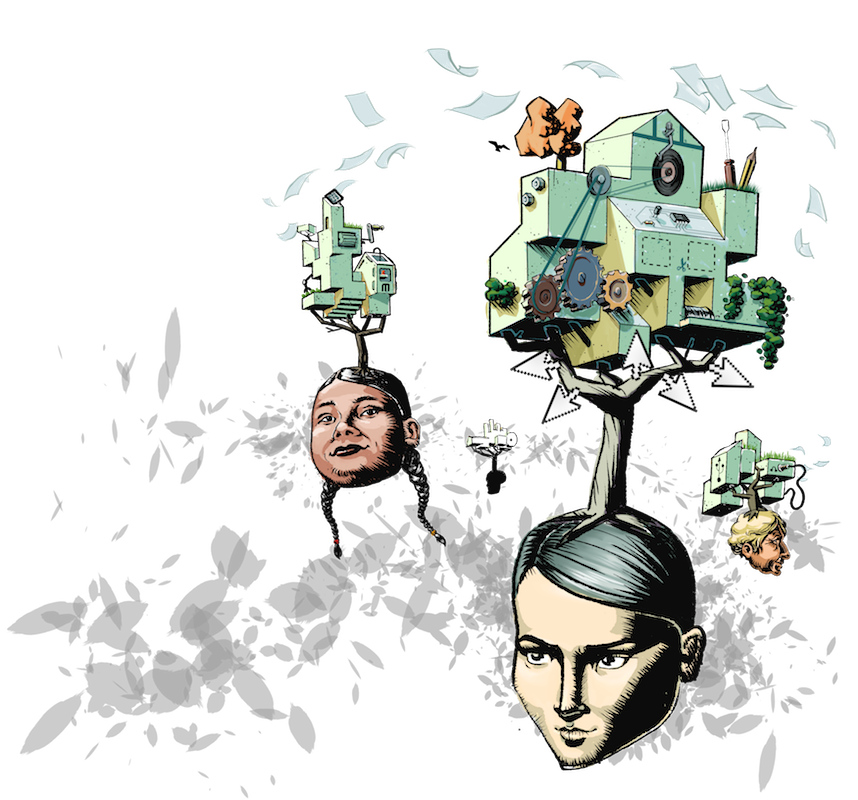Can UNDP's Accelerator Labs speed up the cosmo-local? Or will they subvert it?
Sounds like good news: the United Nations Development Programme (UNDP) is accelerating its search for best practice on how to deliver the Sustainable Development Goals (SDGs) by building the world’s largest and fastest learning network in the world, titled the Accelerator Lab Network.
We say sounds like, because we’re hoping that the connections made will reach directly down to the local - and from the local, directly back up to the global. Without having to navigate through too many governmental or non-governmental organisational layers.
As the P2P Foundation describes, it’s important to invert the usual top down relationship with learning and intellectual property – whether that refers to corporations or NGOs. “With cosmo-localism, the intellectual property is available globally for all to use (or can be a Peer Production license). And distributed production centers utilizing new production technologies allow enterprises to manufacture and produce such items locally for local markets and specialized purposes”.
As Jose Ramos explains:
The normative impetus for cosmo-localism is based on a number of as-yet unproven assumptions:
that cosmo-localism can help drive the development of localized circular economies / industrial ecologies that can reduce or eliminate waste;
that the localized production of critical products can make a city or region more resilient in the face of financial and environmental shocks;
that cosmo-localism driven import substitution can generate local jobs and expertise and provide new development pathways;
and that the reduction of imported goods from far away places will also reduce carbon and environmental footprints.
Here is how the UNDP see it:
The Accelerator Lab network will comprise 60 labs based in nearly one-third of the world’s countries. We are trying to dramatically speed up our ability to learn which development ideas work and how to apply them more widely.
As a way to discover new solutions in the public sector, labs are not new. A global network is.
These labs aren’t only about adopting new ideas or technology. Wherever a social or environmental challenge exists, wherever public services don’t meet people’s needs, there are those who have succeeded despite the odds. The Accelerator Labs will find and connect problem solvers in Africa, Asia, Latin America and elsewhere, using both local networks and data from novel sources such as satellite imagery or social media.
We’re on a solutions hunt! We want people such as the entrepreneurs who created floating farms in flood-prone Bangladesh, or innovators such as Dana Lewis, who created open source tools to manage Type 1 diabetes. We’ll be working with academics and businesses who have great ideas. And there’s much more to come.
Learning faster and smarter
We’re setting out to build the world’s largest and fastest learning network for development challenges. The network will build on UNDP’s innovation portfolio and the partnerships we have with labs around the world.
As the Accelerator Labs, we draw inspiration from local solutions that are already working — regardless of whether it’s a grassroots invention, a policy workaround, or a business that’s making the world a better place.
We radically accelerate learning about what works by operating as a globally integrated network where each Lab learns from the rest, by exploring multiple solutions at the same time, and by designing experiments that teach us whether solutions can work and grow in weeks or months rather than years.
Each lab will contribute to and benefit from the experiences of others through peer-to-peer learning, and a focus on analysing data to find solutions. They’ll use collective intelligence in designing experiments to face and overcome frontier challenges. We’re serious about learning, and are looking for your ideas on how to use the reach of UNDP to find them.
UNDP is making a big, global commitment to re-imagining how we work. We know we can’t do this alone. We’re calling for all types of partners to join us.
We’ll be watching that space.

